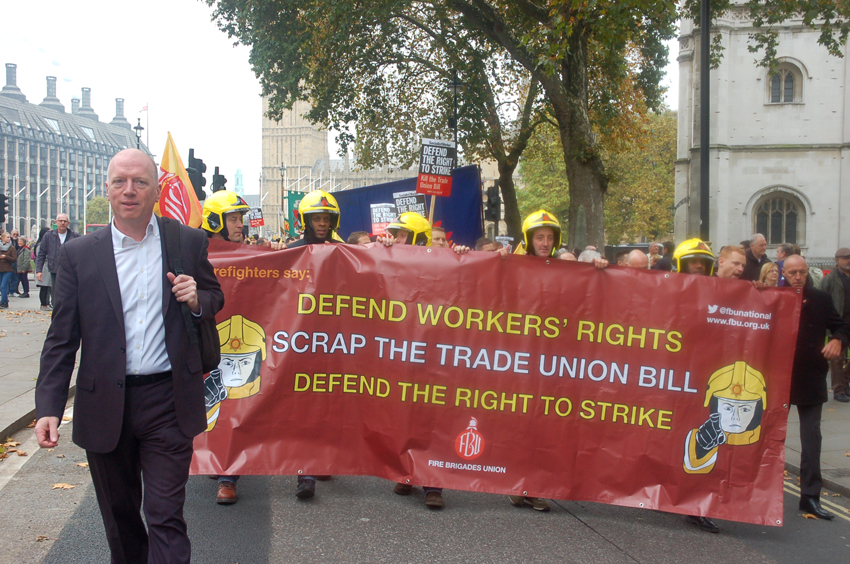MICK Whelan, general secretary of ASLEF, the train drivers’ union has spoken out after the Tory government suffered a major defeat in the High Court as judges ruled its strike-breaking agency worker regulations are unlawful.
Whelan said: ‘We are proud to have stood with the other trade unions and the TUC to challenge these changes legally, and we will continue to do so in all those other areas, including Minimum Service Levels, to ensure a level playing field for workers here in the UK. And we look forward to Labour’s New Deal for Workers which will repeal many areas of the Tories’ anti-trade union legislation and, hopefully, make the need for such challenges unnecessary in the future.’
The TUC said the ruling is a ‘badge of shame’ for the Conservative government – and a ‘major blow’ to ‘ministers’ attempts to undermine the right to strike’.
It added: ‘Ministers should spare themselves further embarrassment’ by ditching changes to agency worker regulations and the anti-strike bill.
The ‘strike-breaking’ regulations were brought in last summer to allow agencies to supply employers with workers to fill in for those on strike.
The High Court ruled that the then Secretary of State for Business, Energy and Industrial Strategy failed to consult unions, as required by the Employment Agencies Act 1973 – quashing the 2022 changes.
Eleven trade unions, coordinated by the TUC and represented by Thompsons Solicitors LLP, brought legal proceedings against the government’s changes to agency worker regulations in a bid to protect the right to strike.
The unions – ASLEF, BFAWU, FDA, GMB, NEU, NUJ, POA, PCS, RMT, Unite and USDAW – come from a wide range of sectors and represent millions of workers in the UK.
Unison and NASUWT also brought separate legal challenges against the laws.
In addition to these agency worker regulations brought in last summer, ministers are currently rushing through the Strikes (Minimum Service Levels) Bill, which is currently making its way through parliament.
This could lead to workers being forced to work even when they have democratically voted to strike, and workers facing the sack if they refuse to comply.
The court was damning in its assessment of ministers’ failure to consult – and in particular, the conduct of the former Secretary of State for Business, Kwasi Kwarteng.
The judgment says: ‘The Secretary of State’s approach was contrary to section 12(2) of the 1973 Act, so unfair as to be unlawful and, indeed, irrational.’
The judgment goes onto say: ‘The approach of Mr Kwarteng was to commit to the revocation of regulation 7 at a time when the advice to him was that it would be of negligible short-term benefit and probably be counterproductive.’
The TUC has warned these new laws could worsen industrial disputes, undermine the fundamental right to strike and endanger public safety if agency staff are required to fill safety critical roles but haven’t been fully trained.
TUC general secretary Paul Nowak said: ‘The Conservatives, have been found guilty of breaching the law.
‘Bringing in less-qualified agency staff to deliver important services risks endangering public safety, worsening disputes and poisoning industrial relations.
‘The government railroaded through this law change despite widespread opposition from agency employers and unions. The courts even found ministers ignored evidence that the measure would be counterproductive.
‘This is the same reckless approach behind the anti-strike bill, which has faced a barrage of criticism from employers, rights groups and international bodies, and which has been amended by the House of Lords on three separate occasions during parliamentary ping-pong.’
Richard Arthur, Head of Trade Union Law, Thompsons solicitors said: ‘The judgment makes clear that the then Secretary of State had a staggering disregard to his legal obligations when introducing legislation that enabled employers to engage agency workers to cover the duties of striking workers.
‘He was driven solely by a political ideology to meet a self imposed deadline to implement the regulations in the face of mounting industrial action across the country.’
